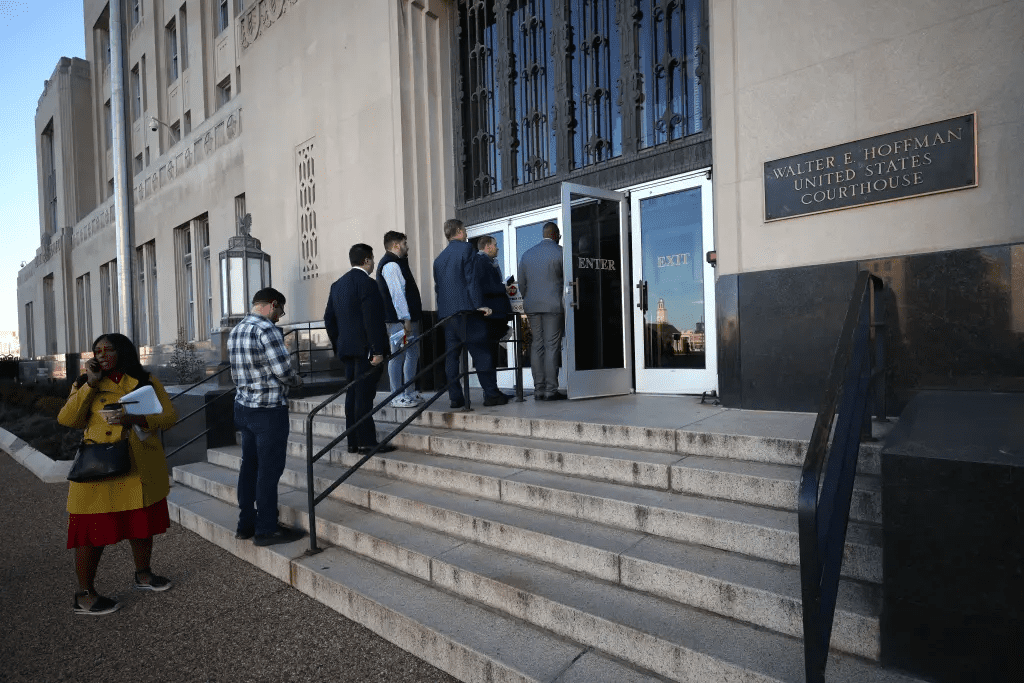New York Attorney General Letitia James Pleads Not Guilty to Federal Bank Fraud and False Statement Charges in Explosive Virginia Property Case
In a packed Virginia courtroom on Friday, New York Attorney General Letitia James stood before a federal judge and entered a resolute plea of “not guilty.” The 67-year-old Democrat, known nationwide for leading high-profile cases against former President Donald Trump, now finds herself on the other side of the legal battle—facing two serious federal charges of bank fraud and making false statements to a financial institution.

The charges stem from her 2020 purchase of a home in Norfolk, Virginia, valued at approximately $137,000. Federal prosecutors allege that James misrepresented the property’s intended use on her loan application, claiming it would serve as her secondary residence when, in reality, it was allegedly used as an investment property. According to the indictment, this misrepresentation allowed her to secure a lower interest rate and more favorable mortgage terms, saving her nearly $19,000 over the life of the loan.
James, whose legal career spans decades of public service and reform, firmly denied any wrongdoing. Her attorneys argued that the entire case is a politically motivated attack, pointing to her years-long legal pursuit of Trump and his organization. Standing outside the courthouse, James addressed reporters and a small group of supporters, saying, “This is not about me. This is about accountability, truth, and justice. I have dedicated my life to enforcing the law, and I will fight these false charges with everything I have.”

The courtroom scene was calm but tense. The presiding judge released James on her own recognizance and set a tentative trial date for early 2026. Her defense team, led by veteran attorney Abbe Lowell, signaled their intent to move for an immediate dismissal of the case. Lowell argued that the prosecution had overstepped its authority, calling the indictment “a misuse of federal power driven by politics rather than evidence.”

Legal experts say the case is unusual for several reasons. For one, the alleged misrepresentation involves a modest property and a relatively small loan compared to typical federal fraud cases. Moreover, internal friction within the Department of Justice reportedly emerged before the indictment, with some career prosecutors expressing doubts about whether the case met the threshold for criminal prosecution.
Still, prosecutors maintain that the charges are about integrity, not politics. They insist that no one—no matter how powerful—should be exempt from the law. The indictment includes one count of bank fraud, which carries a potential penalty of up to 30 years in prison, and one count of making a false statement to a financial institution, which carries up to five.

The controversy deepened as the political implications became clearer. James’s high-profile battles with Trump, including the civil fraud case that led to massive financial penalties against his company, have made her a polarizing figure. To her supporters, the charges are a transparent act of retaliation from political forces seeking to discredit her. To her critics, the case represents long-overdue scrutiny of a prosecutor who, they argue, wielded her power selectively.
Beyond the political noise, the facts of the case will likely hinge on a simple question: did Letitia James intentionally mislead the bank when applying for her mortgage? Her defense claims that the property was purchased to help a family member and that any discrepancies in paperwork were administrative errors, not criminal deceit. Federal prosecutors, on the other hand, insist that the records clearly show she identified the home as a secondary residence while also listing it as an investment property in her state ethics filings.

As the legal process unfolds, the case could have enormous consequences not just for James personally but for the broader conversation about accountability in American politics. If convicted, she faces severe penalties, but if acquitted, her case could become a rallying point for those who see an increasing trend of politically motivated prosecutions in the United States.

For now, Letitia James remains defiant and determined. Her courtroom demeanor, calm yet unwavering, reflected a woman who has spent her life in the legal trenches and knows exactly what it means to fight back. “I’ve always believed in justice,” she told reporters. “And I still do.”



